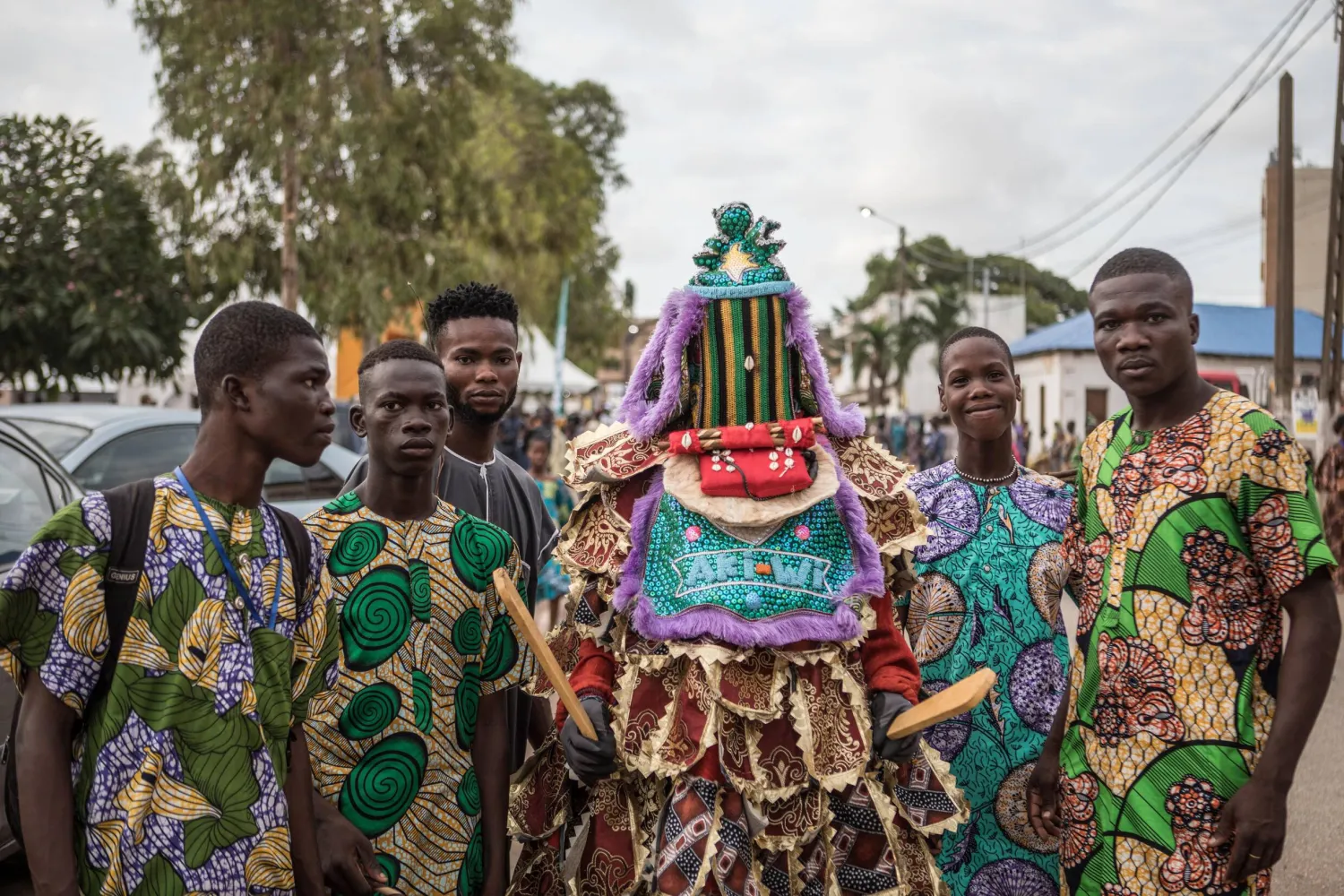Spectators poured into Benin's capital for a new festival celebrating traditional masks over the weekend as the West African country seeks to attract visitors and showcase its cultural heritage.
The three-day Porto Novo Mask Festival drew participants from across Benin as well as neighboring Togo and Burkina Faso, said AFP.
There was excitement in the crowd as spectators caught sight of some masked and costumed figures rarely seen outside their respective regions.
The main street hummed with traditional music while officials and members of the public watched displays of acrobatics and stilt-walkers perched on eight-meter (26-foot) poles.
Benin's government and city authorities launched the event to replace the Porto Novo International Festival, usually held in January, and there were both secular and religious masks on show.
Voodoo, known locally as Vodun, is widely practiced in Benin. It worships gods and natural spirits while showing respect to revered ancestors.
"I'm very moved -- I saw masks I'd never had the chance to see before," said Vodun religious dignitary Severin Alode, 43. "I've never seen such a buzz. It's a first."
The festival's main attractions were Gonouko, towering masked figures from Porto Novo, alongside an array of other masks and appearances from Zangbeto, traditional Vodun guardians of the night.
Even the rare Hounve mask was on display, as Vodun dignitary Adanklounon Ado Setondji explained.
"Our parents knew how to hide the Hounve, but as we are in the mindset of promotion, we have to take the masks out and show them to the public," he said.
Before the festival, rituals took place away from spectators.
Bale Atchade, a 65-year-old Vodun dignitary, said there were ceremonies centered on resolving social problems and others linked to infertility.
'Source of pride'
Ayaba Collete Dossou, a member of the national Vodun rites committee, said the Porto Novo festival showed "the beauty of our culture and our wealth."
The city's mayor Charlemagne Yankoty said the event "puts Porto Novo in the spotlight."
"The mask festival will enhance Benin's culture and reveal its full value in terms of heritage and culture," he said.
Earlier this year, the government revamped another of Benin's cultural celebrations -- its famous Voodoo festival -- in a bid to attract more visitors.
"Vodun is of economic interest to us, since tourism is an important sector," said President Patrice Talon at the festival in January.
He said he hoped that event would help explain "what Vodun is and how it is practiced" to domestic as well as foreign tourists.
There were signs his wishes were being fulfilled at the mask festival in Porto Novo, too.
Frederica Nzamba, a 30-year-old visitor with Beninese roots, told AFP she came to "better discover and understand Benin's culture" after 16 years living abroad.
The festival, she said, was a "source of pride."
Mask Festival Brings 'Buzz and Beauty' to Benin's Capital

Paradegoers pose with an egungun, a traditional Yoruba figure, at the Porto Novo Mask Festival. Yanick Folly / AFP

Mask Festival Brings 'Buzz and Beauty' to Benin's Capital

Paradegoers pose with an egungun, a traditional Yoruba figure, at the Porto Novo Mask Festival. Yanick Folly / AFP
لم تشترك بعد
انشئ حساباً خاصاً بك لتحصل على أخبار مخصصة لك ولتتمتع بخاصية حفظ المقالات وتتلقى نشراتنا البريدية المتنوعة







